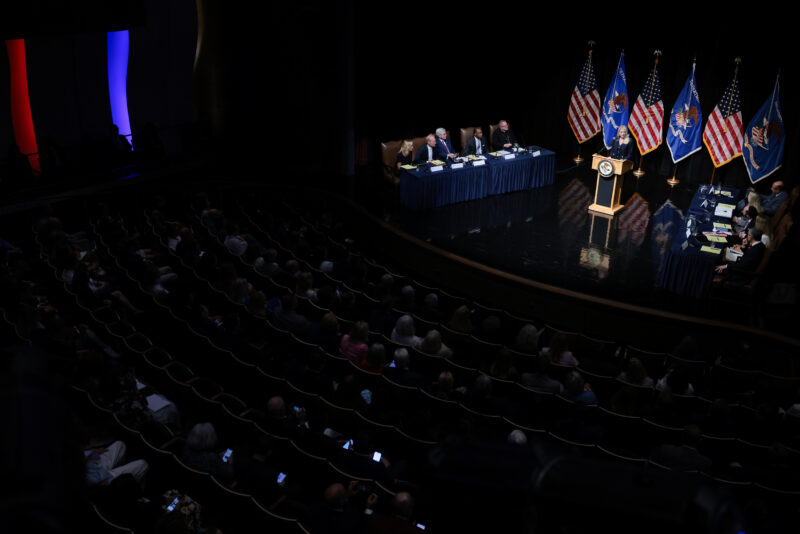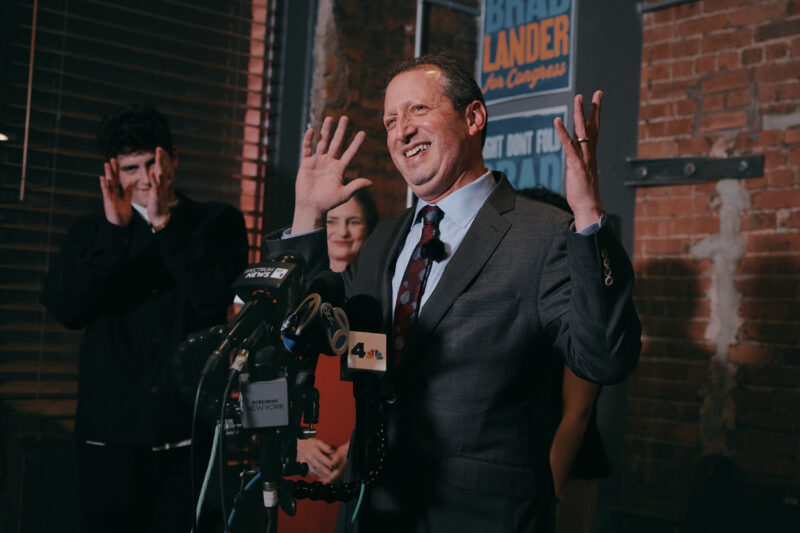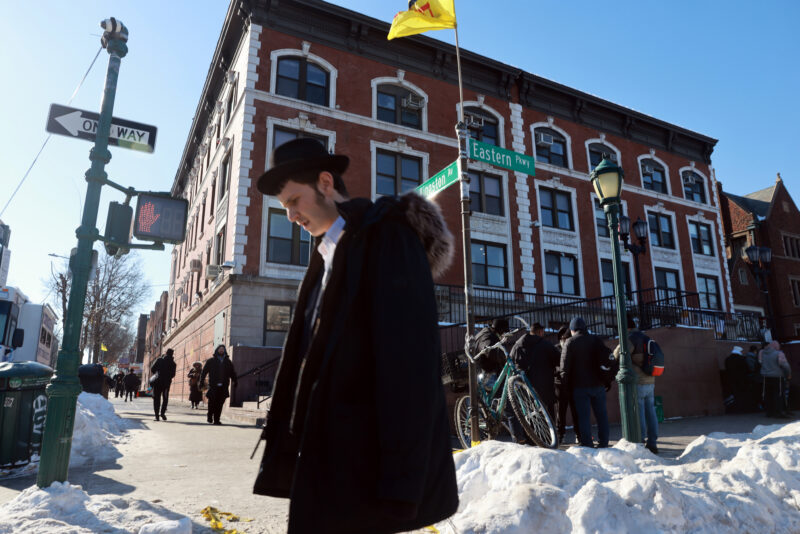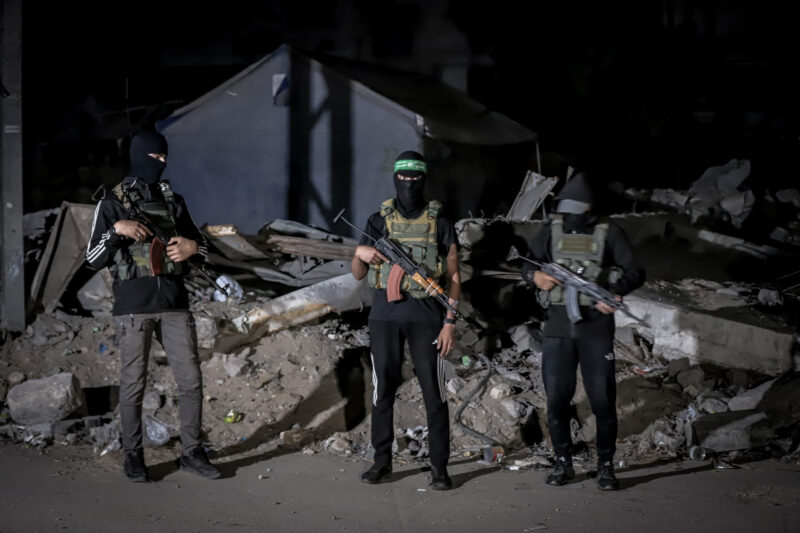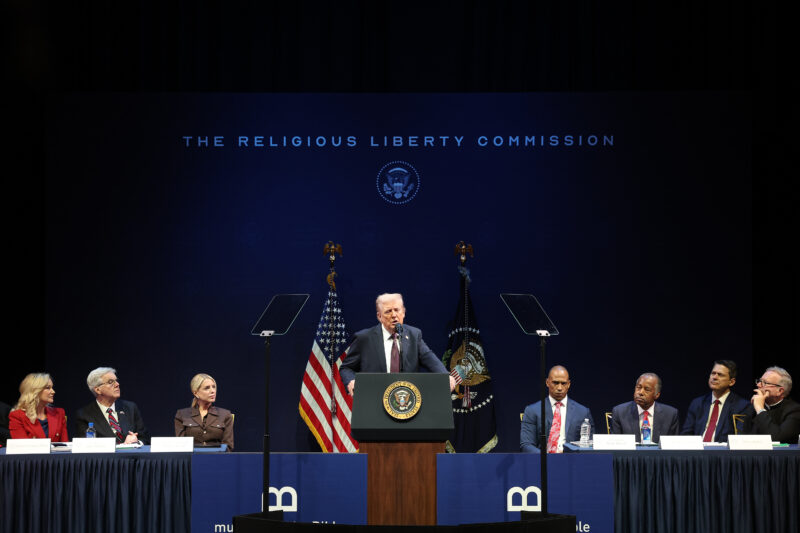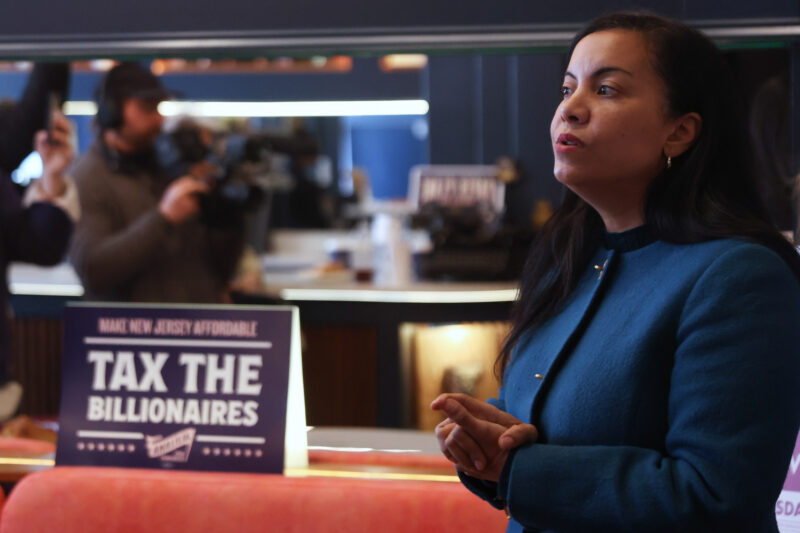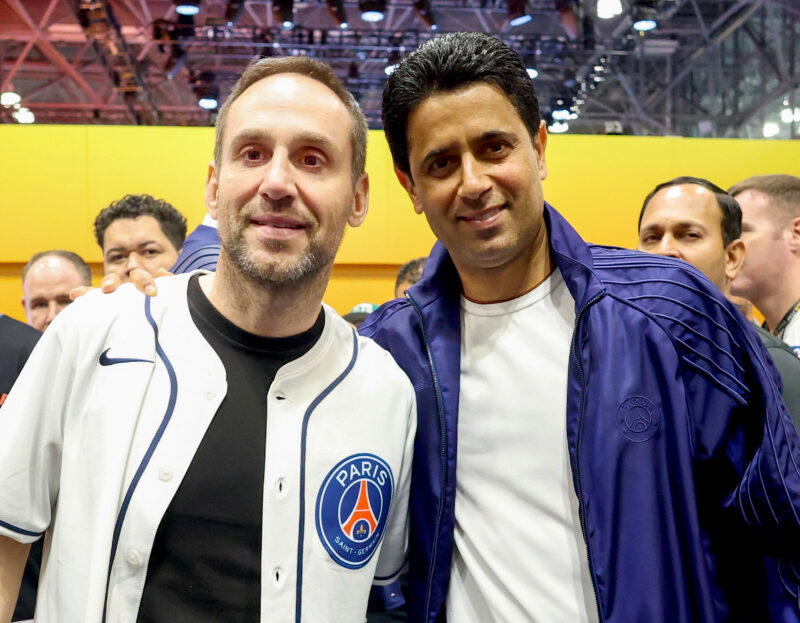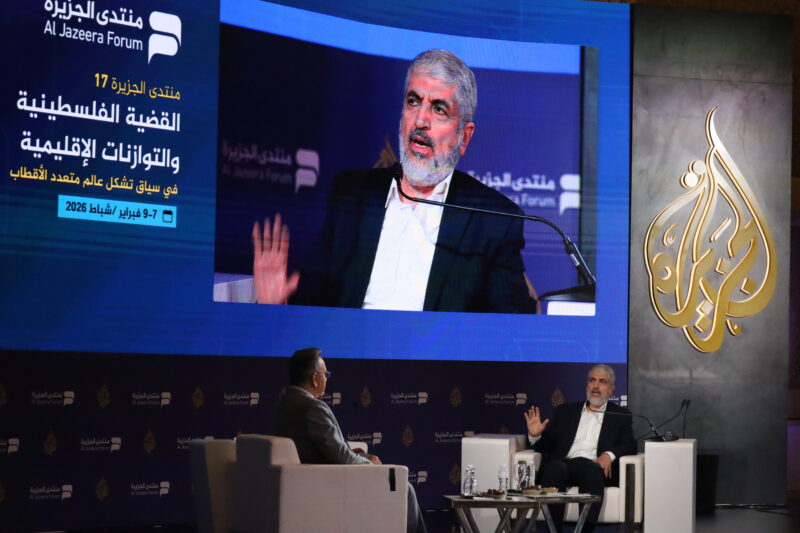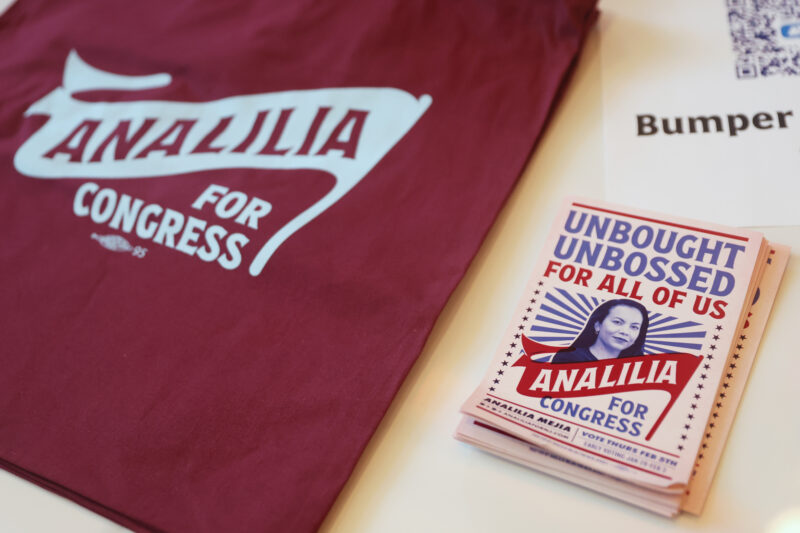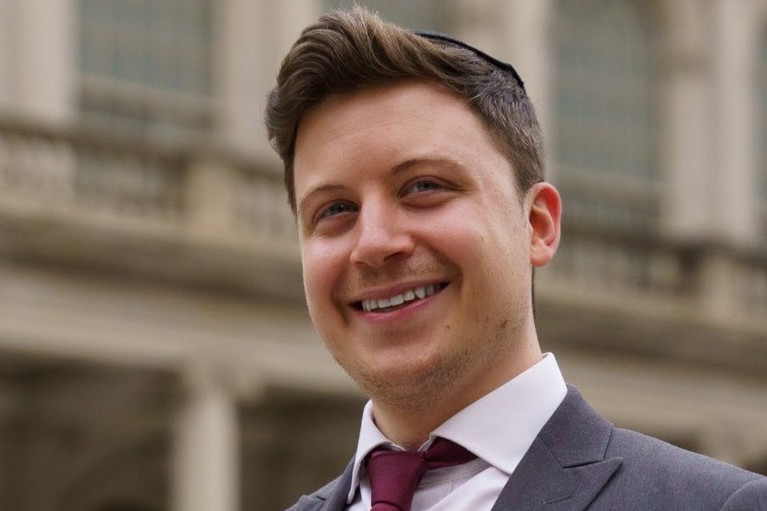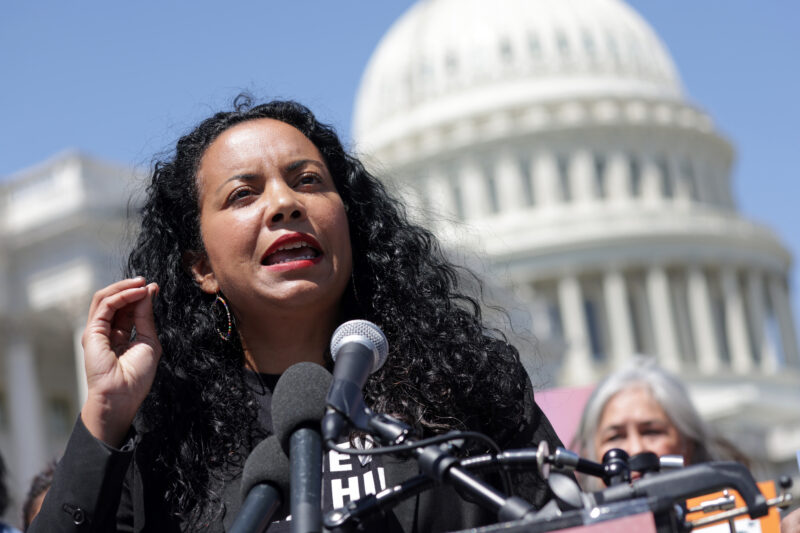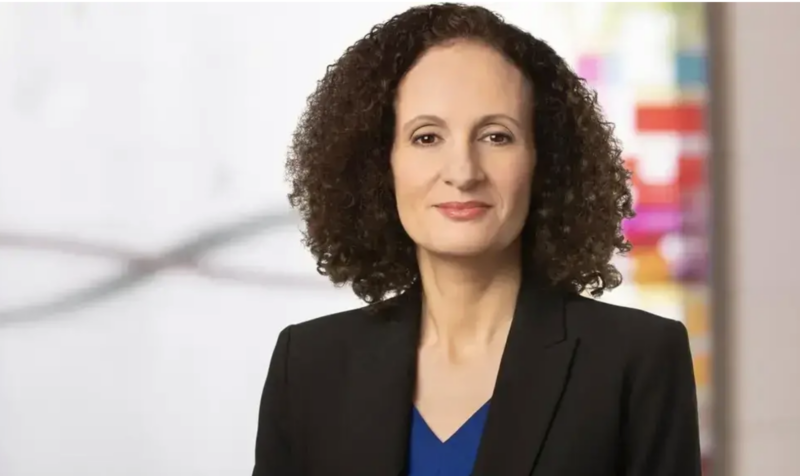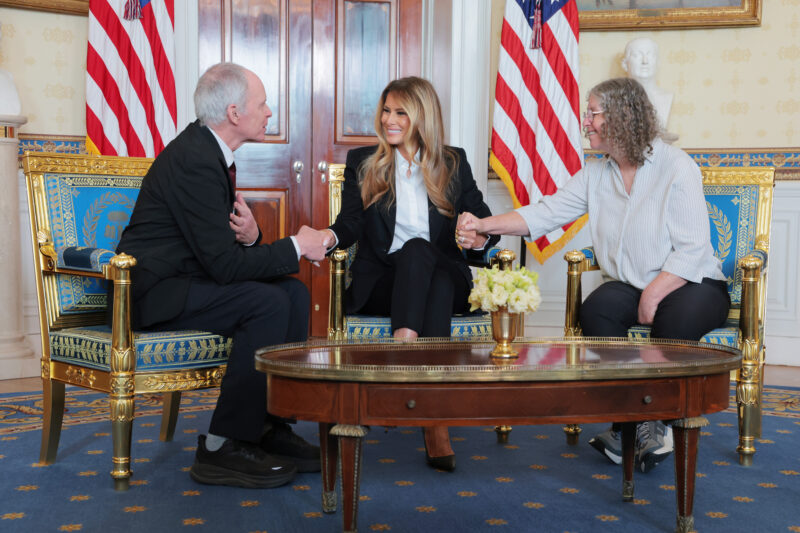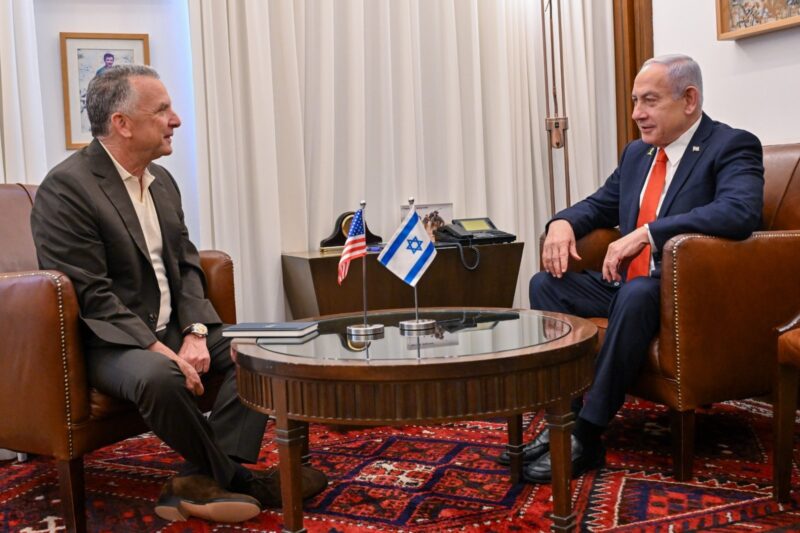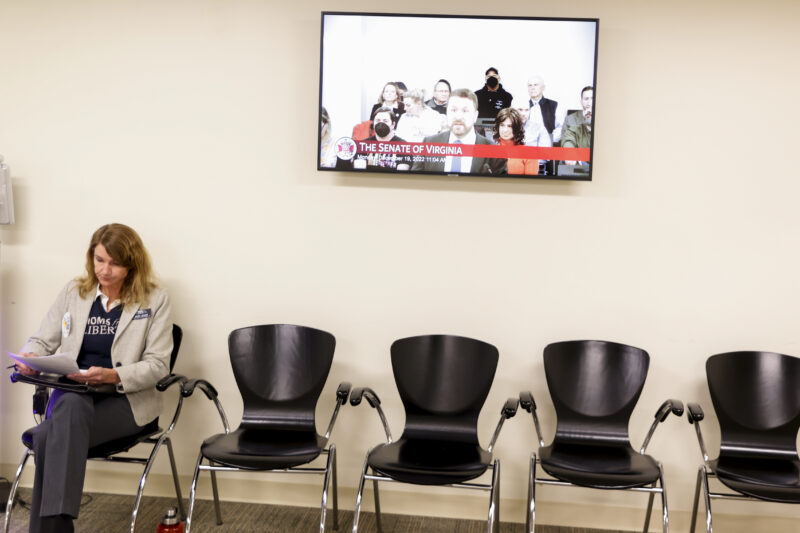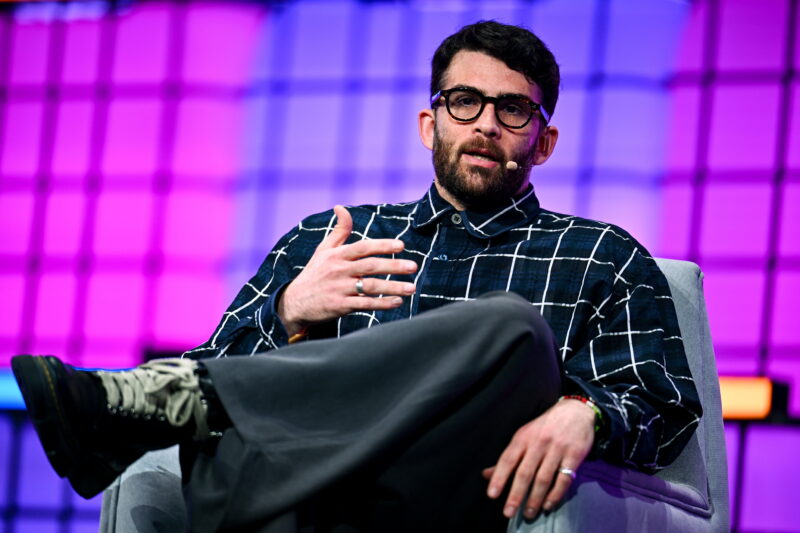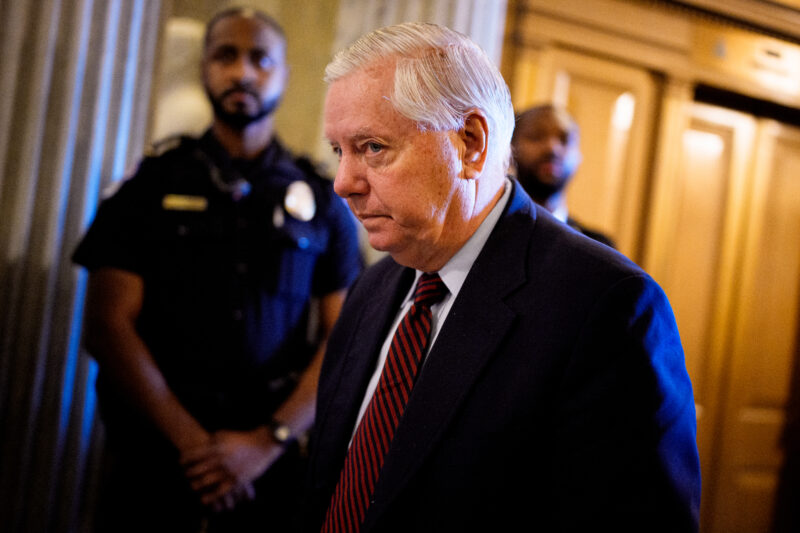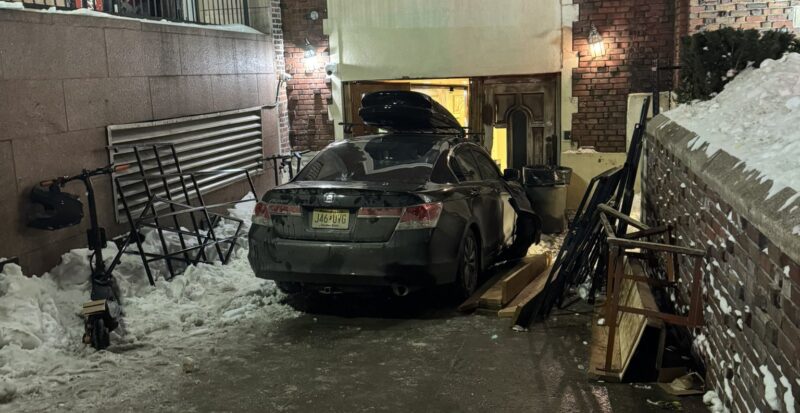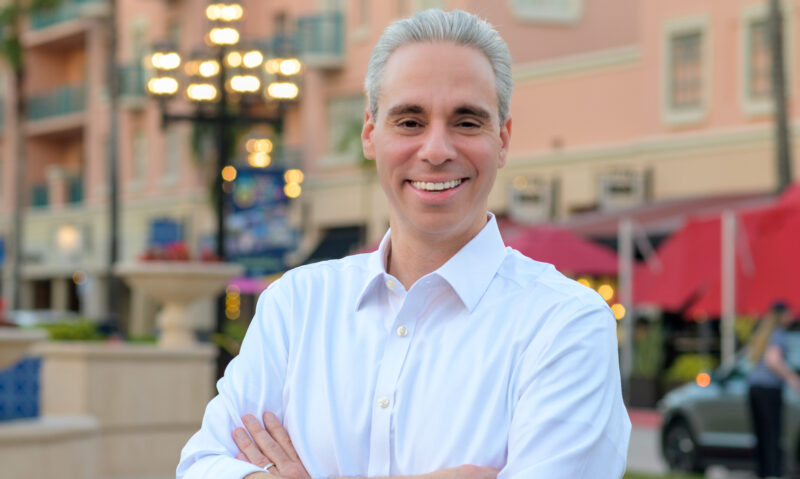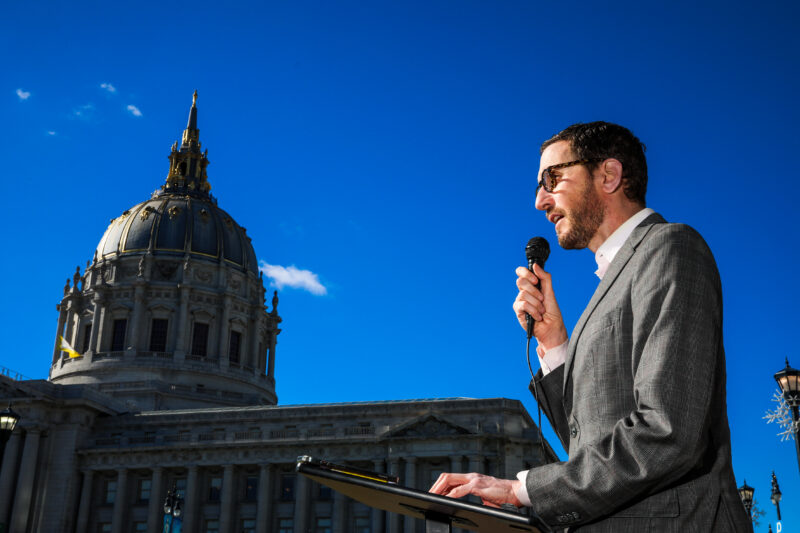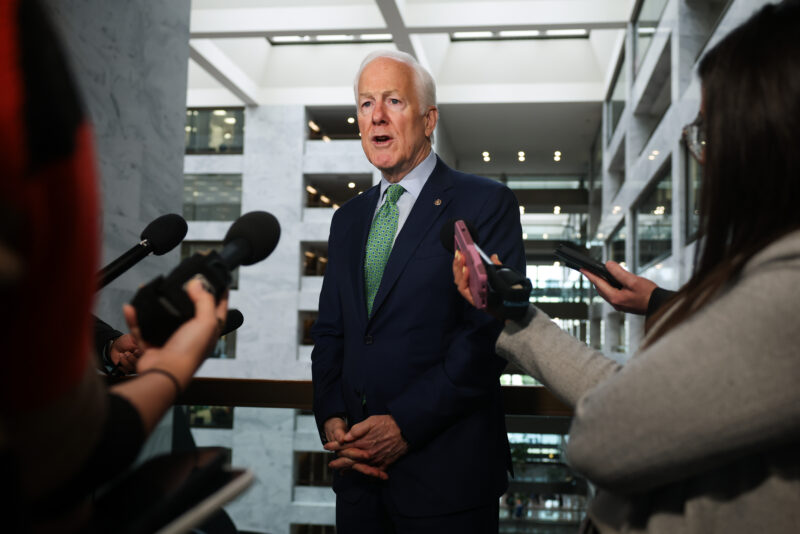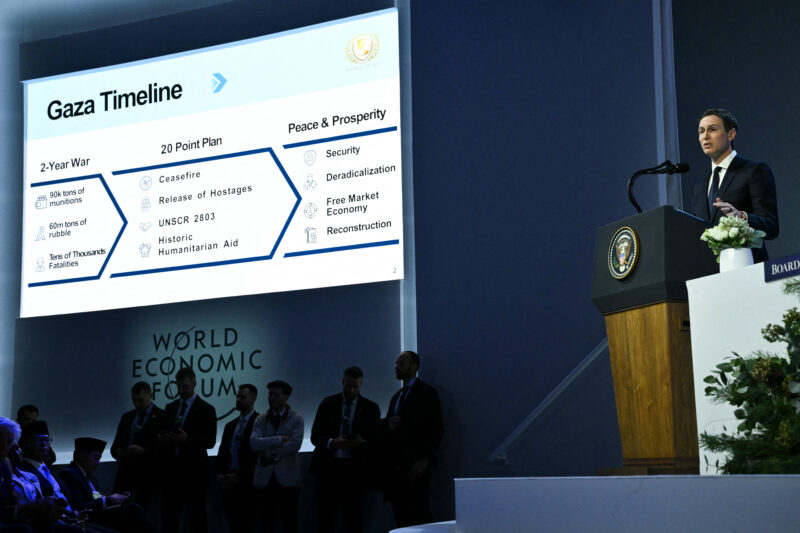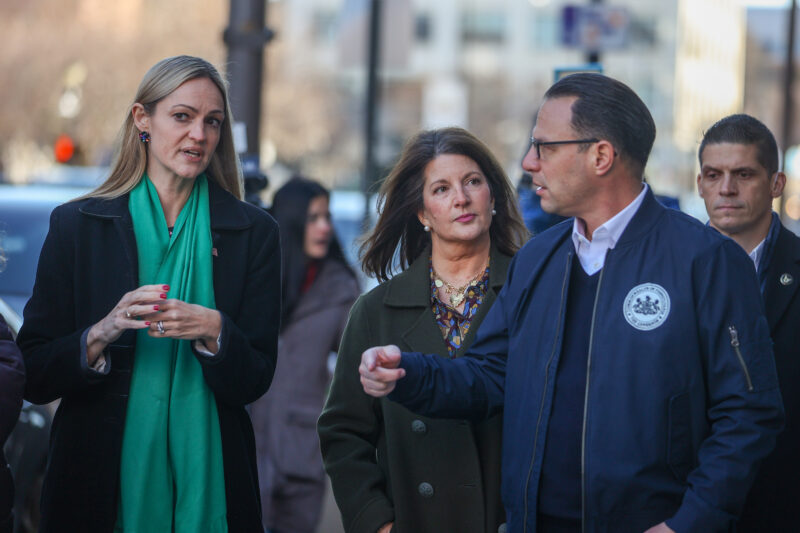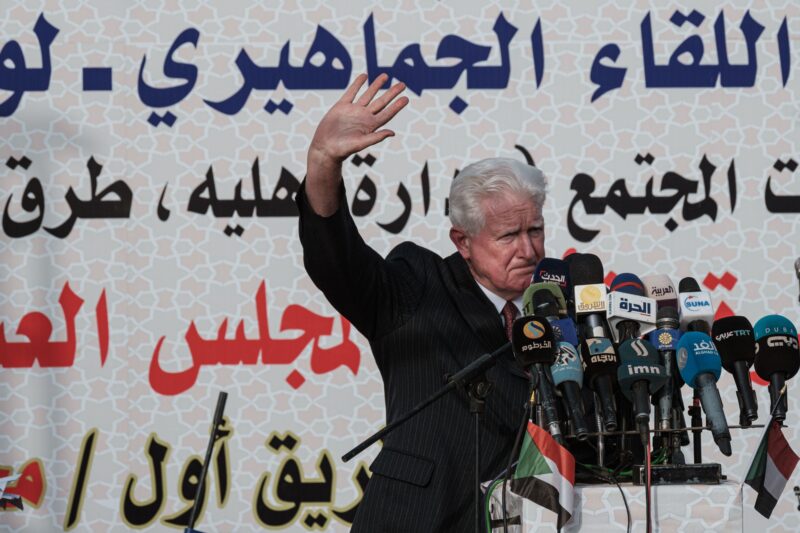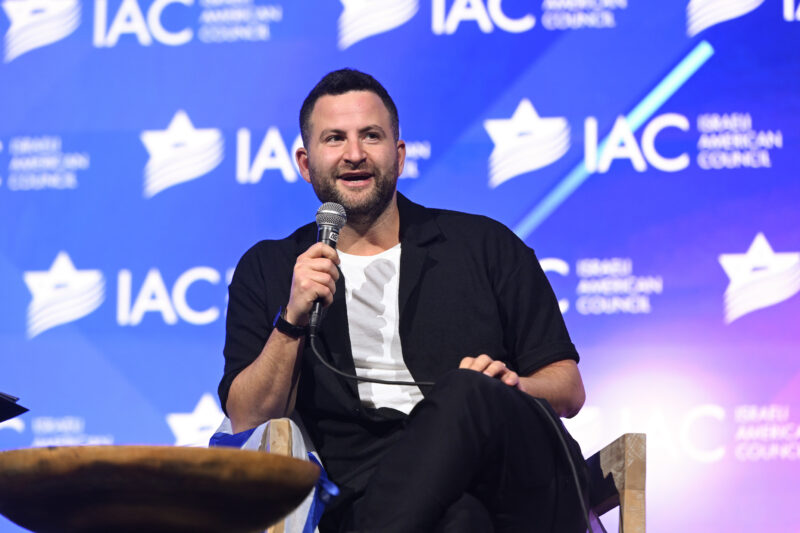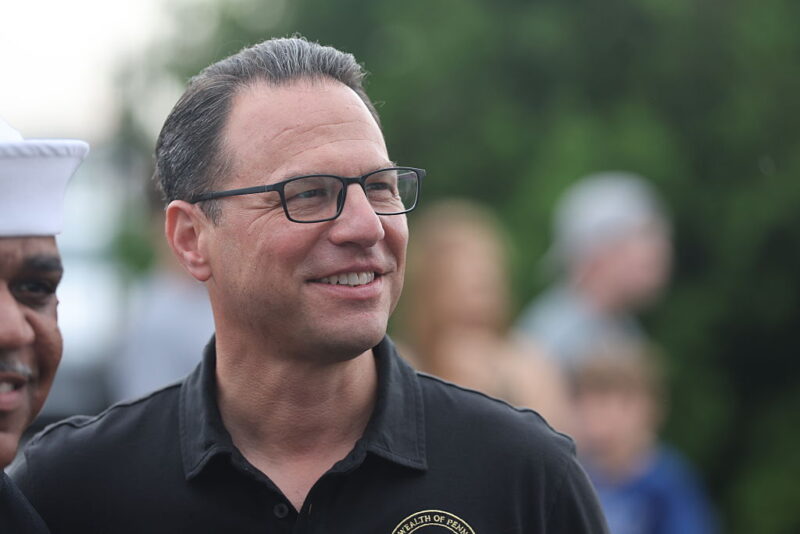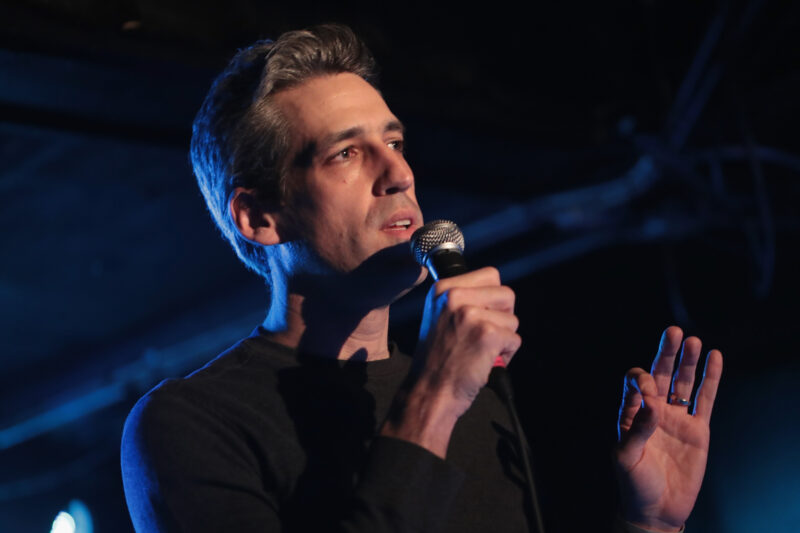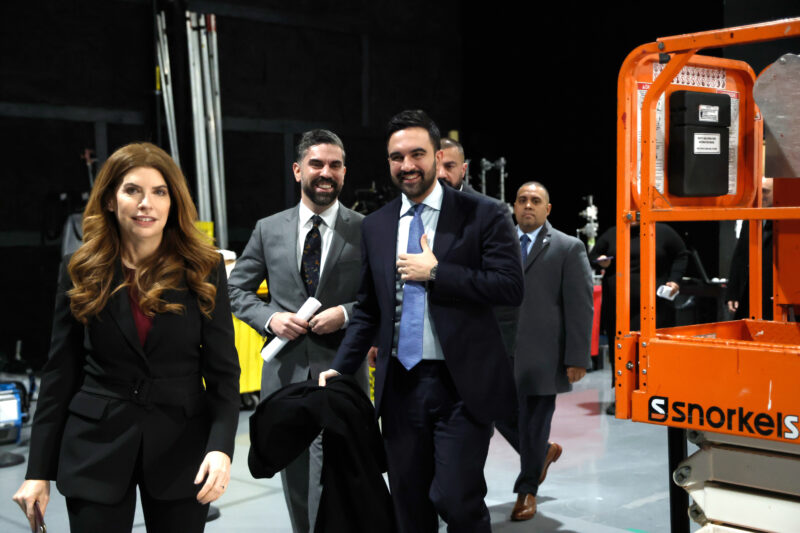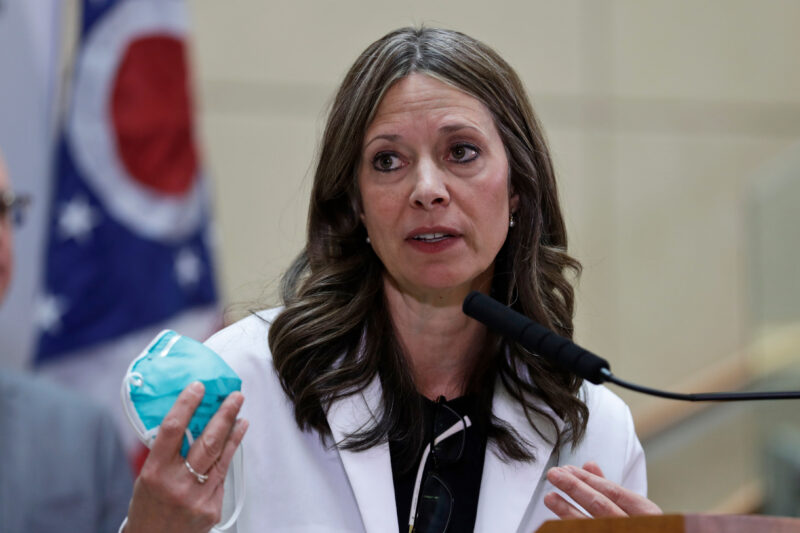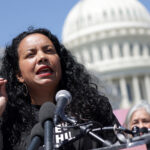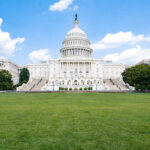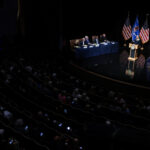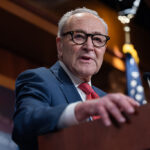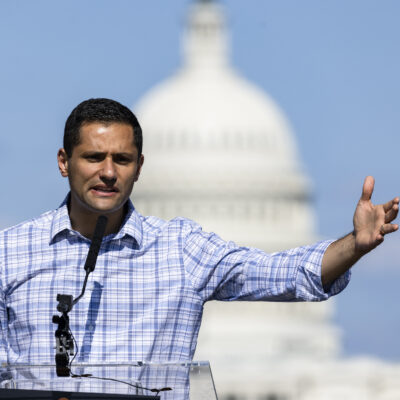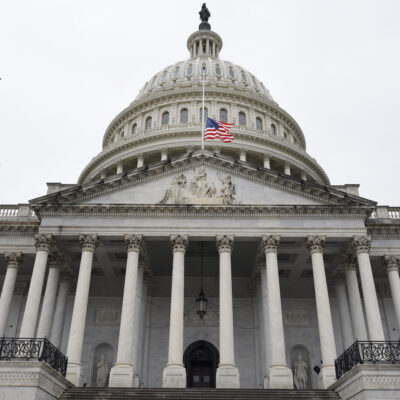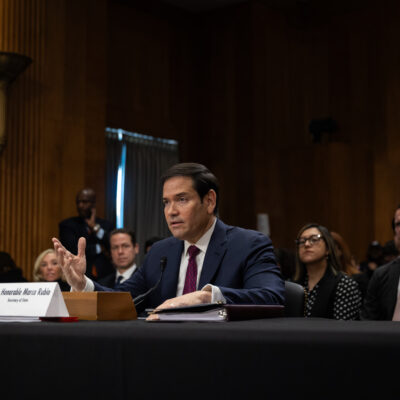A muted reaction seen in Michigan to spasm of antisemitic vandalism
Rabbi Asher Lopatin, the director of community relations at the Ann Arbor Jewish Federation, slams political leaders’ ‘weak’ responses

Bill Pugliano/Getty Images
Students walk across the University of Michigan campus in Ann Arbor, Michigan.
On the one-year anniversary of Hamas’ Oct. 7 attack, the home of University of Michigan President Santa Ono and several locations — with ties to either Jewish individuals or organizations with connections to Israel — became the latest targets in a spate of antisemitic vandalism that have plagued the state throughout the year.
Even as the attacks have been aimed against high-profile victims or leading Jewish institutions, one prominent Jewish leader in the state is calling out the state’s political leadership for muted reactions in their condemnation of the vandalism and other recent incidents, noting that few have used the power of their office to speak out against a spasm of antisemitism affecting the state.
Following the spate of antisemitic incidents in Michigan, which is a key battleground state in next month’s election, local Jewish community leaders remain divided about how the response is being handled.
“I’d definitely like to see more of a crackdown” from elected officials, Rabbi Asher Lopatin, director of community relations at the Jewish Federation of Greater Ann Arbor, told Jewish Insider.
On the morning of Oct. 7, Ono’s home, the home of University of Michigan chief investment officer, Erik Lundberg, and the offices of the Michigan Israel Business Accelerator and the Jewish Federation of Detroit were spray-painted with words including “intifada” and “coward.” The group that took responsibility for the four acts of vandalism, Unity of Fields, formerly known as Palestine Action U.S., wrote that it targeted “businesses to universities.”
“We reject all financial support for the Israeli regime,” the group said in a statement on Telegram.
“There are a lot of incidents and it’s hard for [politicians] to even understand where they are all coming from,” Carolyn Normandin, regional director of Anti-Defamation League Michigan, told JI. Normandin emphasized that law enforcement, on the other hand, has responded promptly and worked closely with the ADL to investigate incidents.
In a statement to JI, Michigan Gov. Gretchen Whitmer said that “the antisemitic graffiti on the headquarters of the Jewish Federation of Detroit, homes of university leaders, and places of business around the state is cruel and abhorrent.”
Whitmer, a Democrat, continued, “On the one year anniversary of the October 7th attack, we must continue rising above actions that aim to divide us and instill fear in our communities.” Whitmer’s office did not immediately issue a press release about the incident.
Last month, ADL CEO Jonathan Greenblatt criticized Whitmer for not speaking up more aggressively against antisemitism — after Rep. Rashida Tlaib (D-MI) insinuated in an interview that the state’s Democratic Attorney General Dana Nessel was only prosecuting anti-Israel protesters who broke the law because she was Jewish.
“Governor Whitmer, when your attorney general prosecutes people for violating the law, harassing Jews, and attacking police officers, it’s in the interest of public safety. When a congresswoman accuses the attorney general of prosecuting protestors simply because she’s Jewish, it’s bias,” Greenblatt said on X.
Lopatin added that it was “very disappointing that when Nessel courageously said the state would prosecute people who violate the law, she did not [initially] get support from Whitmer and some elected officials.”
“She did get support from most of the congressional delegation and that was helpful,” Lopatin continued.
(A Whitmer spokesperson later issued a follow-up statement offering a clearer defense of Nessel, without specifically defending the Michigan attorney general’s prosecution of the anti-Israel protesters. The statement did not mention Tlaib.)
“Whichever side you’re on, everyone respects decisiveness and being forthright in saying what is right and wrong,” Lopatin said. “This kind of weak response to people violating the law and intimidating others— I don’t think that this weak response gains anybody’s respect on any side of the political spectrum.”
“Politicians would do themselves a favor if they took a strong stand against illegal actions, whether against Jews or anyone else,” Lopatin said. “I think everyone – including in the Arab American community – are picking up on the weakness. If society condemns something, that means all of the politicians and leaders, then it diminishes.”
Michigan has been an epicenter of antisemitic activity in recent months. Earlier this month, more than 100 households across close to a dozen Detroit suburbs received antisemitic flyers. The flier drops are “done by a cowardly group who operates – most of the time – just within the law,” Normadin said. “These are deceitful bad actors whose only goal is to sow hatred toward the Jews… I hope police find some of the people responsible and that they are prosecuted to the fullest extent of the law.”
Last month, a Jewish student at the University of Michigan was attacked — resulting in minor injuries — in what the Ann Arbor Police Department described as “a bias-motivated assault.”
Meanwhile, in June, the exterior of University of Michigan Board of Regents member Jordan Acker’s law office was vandalized overnight with the phrases “FREE PALESTINE,” “DIVEST NOW,” “F***YOU ACKER” and “UM KILLS” scrawled on the walls, walkway and front window. Acker, who is Jewish, was also targeted by masked anti-Israel demonstrators one month earlier outside of his home as Acker, his wife and three daughters were asleep.
In the spring, the University of Michigan campus was host to an anti-Israel protest encampment that lasted for nearly four weeks and was ultimately broken up by police. Ono said that this year, the university will have “zero tolerance” for any efforts to reestablish encampments.
While “more needs to be done to set boundaries” to prevent these types of incidents around the state, Lopatin said, at the University of Michigan, “there’s been an improvement,” compared to last year when the school was a hotbed of anti-Israel activity. Lopatin is the father of two University of Michigan students who were recognized in March at an Honors Convocation that was disrupted by anti-Zionist demonstrators.
“I’m happy to see President Ono speaking out much faster and more forcefully,” Lopatin said. “I think he has done a good job with not allowing protesters to intimidate Jewish people.”
Please log in if you already have a subscription, or subscribe to access the latest updates.




